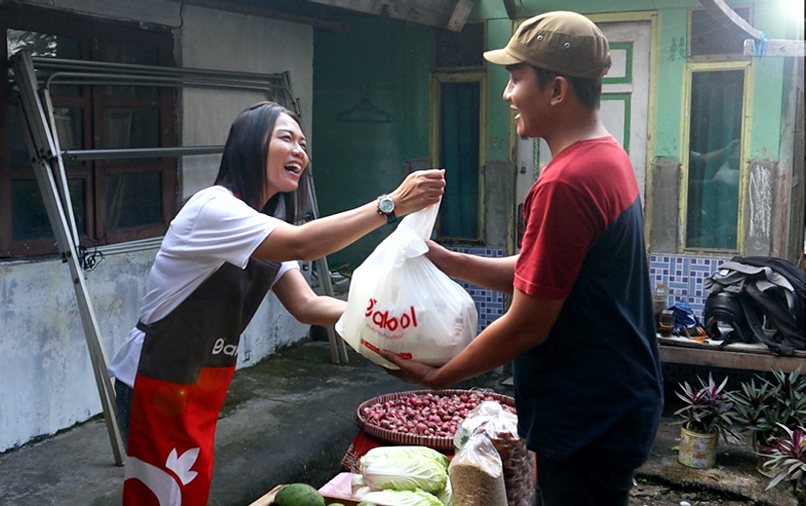20 December 2022 – Y Combinator-backed Radius rebrands to Bakool as the company evolves into a group buying platform for fresh produce, the first of its kind in rural Indonesia. Following this rebranding and early traction, Bakool raised an undisclosed seed round, with participation from Kleiner Perkins, Goodwater, Insignia Ventures, Global Brain, former minister of Indonesia Mari Elka Pangestu, and others.
Bakool evolution is driven by customer demand, painful customer journeys, and market opportunity around fresh produce for underserved tier-2 cities
Bakool came about as Radius was growing as a quick commerce platform for tier-2 cities. Founders Ivan Darmawan and Stephanie Wongsoredjo started Radius by responding to the needs of households in tier-2 cities amidst the pandemic. As they saw early progress (which also led to them being part of Y Combinator’s Winter 2022 cohort), they foresaw challenges given the operationally intensive nature of the business. Customer data also showed greater demand for fresh produce products as opposed to their focus on dry goods. This on-the-ground data aligned with the massive US$80 billion addressable market for food commodities of tier-2 and tier-3 cities in Indonesia.
With these factors taken into consideration, the company evolved into Bakool, a pioneering group buying platform for fresh produce targeting cities that have GDP/capita lower than US$7500. In these cities, fresh produce is still largely accessed through offline, traditional wet markets. These cities also have 50% lower income but pay similar prices for fresh produce compared to Jakarta. This weak purchasing power has led to low average order values, and in an environment with next to no delivery providers for these goods, households have had to minimize expenses by buying from night markets for bigger savings.
These pain points meet the capabilities and experience Ivan, Stephanie, and their team bring to the table.
“Bakool is tapping into the massive underserved opportunity around fresh produce accessibility for tier-2, tier-3 and rural cities in Indonesia, which already amounts to a significant business even capturing a portion of the market. And with Ivan and Stephanie sharing more than fifteen years in retail, farming, and supply chain, leadership experience in top Southeast Asia unicorns, and their significant progress and learnings already growing Radius, we believe they are in prime position to evolve into this role to improve not just the way Indonesians in these cities access fresh produce but also impact overall household productivity in the country, with cost savings on group buying, time savings on delivery, and income for their agents,” Yinglan Tan, founding managing partner at Insignia Ventures, shares.
The long-term goal is not just about better access to fresh produce but also improving household productivity
By working with an agent network model (B2A2C or business to agent to consumer), Bakool enables fresh produce group buying and delivery for tier-2 city households, improving household productivity. These households can save up to 15% on costs of goods and transportation, as well as save up to 5 hours of their day as they would no longer need to go to the night markets.
Bakool agents also win in this equation. By making fresh produce more accessible and convenient for their communities, these agents, typically housewives and community leaders, have been able to make up to 3x their income.
As CEO Ivan Darmawan shares what they hope to achieve by enabling more equitable and convenient access to fresh produce in Indonesia’s tier-2 cities.
“With Bakool, we are committed to serve untapped cities in Indonesia and increase their households’ productivity. Through thousands of Bakool’s agents, we can reduce transport and supply costs, without compromising on quality. Our agents have made 3x their previous income and we are expanding fast. Long-term we want to become the Whole Foods for rural Indonesia without having offline stores.” – Ivan Darmawan
Former minister of Indonesia Mari Elka Pangestu shares what this means for the Indonesian economy. “Bakool’s mission of increasing household’s productivity is a much-needed focus for technology businesses in the country. This mission will bring long-term returns to the national economy and has potential repercussions for future generations in having a better quality of life. I look forward to the progress Ivan, Stephanie, and their team will make to realize this impact for underserved cities and economies across Indonesia.”
For inquiries, email pr@insignia.vc.
